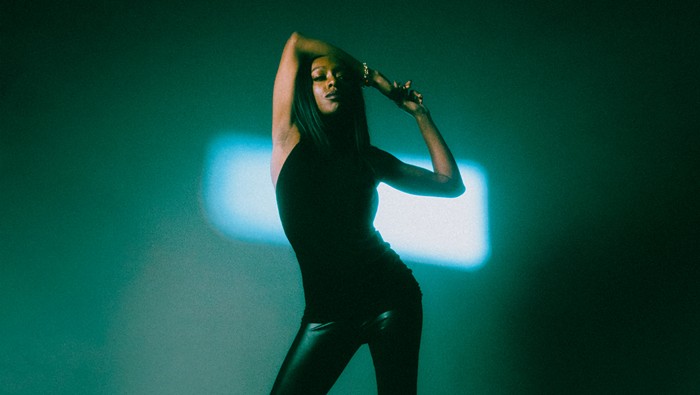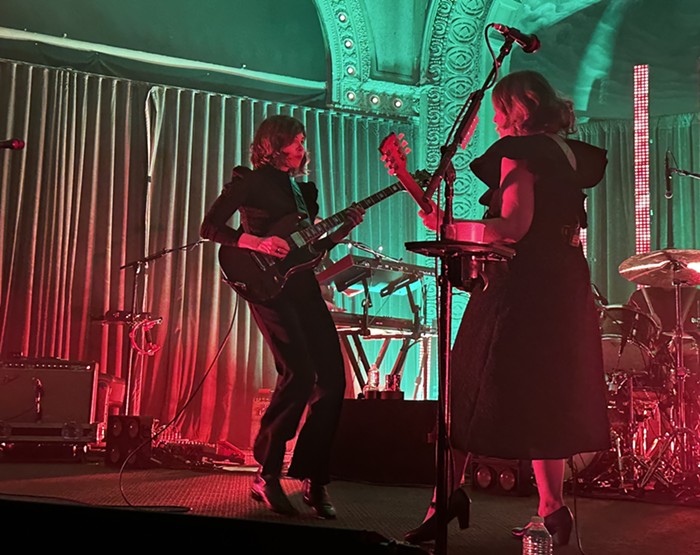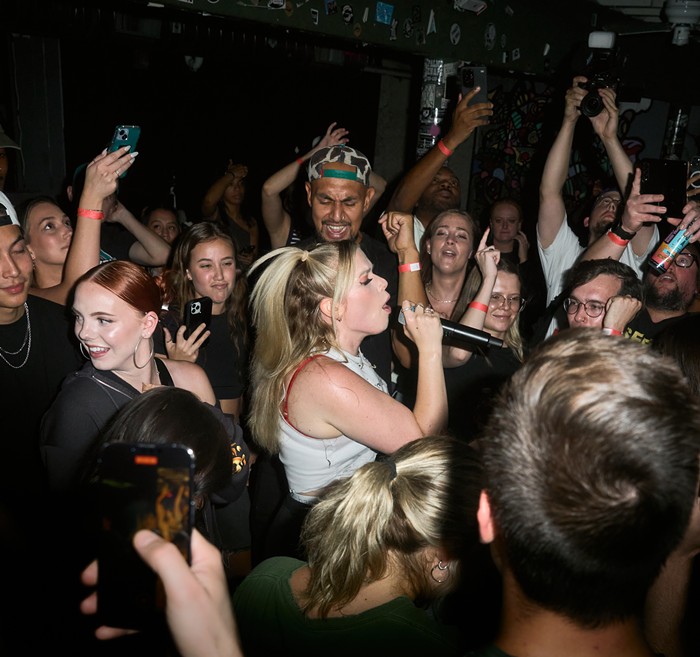Pity the poor bearded frontman in a town of so many just like him. Pardon Justin Ringle, the lone pony of Horse Feathers, for he's at a bit of a crossroads right now. Not quite the legendary dirt road crossroads where the devil barters a sinful guitar for a human soul—or the unintentionally hilarious Ralph Macchio film of the same name—but we're talking about that point where it's all or nothing and a decision needs to be made. Years back, Ringle stumbled from the woods—Lewiston, Idaho, actually—and dropped Words are Dead, a staggering recording of cracked-voiced rural folk music that changed just about everything. What followed were global tours, universal acclaim, a Plug Award nomination (it's like the indie rock Grammys, hosted by our Billy Crystal, David Cross), and signing on the dotted line with the untouchable Kill Rock Stars label. For a once struggling musician in the Pacific Northwest, this is it, right? Ringle has arrived. So, now what?
The answer is House with No Home, a Herculean effort of a sophomore record, conceived in infinitesimal brushstrokes of painfully restrained singing, kisses of vast instrumentation (acoustic guitar, violin, cello, mandolin, autoharp, piano, zither, lap-steel—all of which rarely rise above a soft whisper in volume), and Ringle's startling ability to make even the most delicate melody resonate with profound ease.
But it's Ringle's newfound confidence as a songwriter that permeates through House, proving that between the touring and near awards (the Plug award went to the better-bearded stallions in Band of Horses), Ringle's greatest evolution has come with the pen. As for Horse Feathers' rustic sound being labeled as vintage Americana (or the dreadful "bedroom Americana"), Ringle prefers to focus on the substance of the material: "I think the focus was more on trying to make music that comes across as being legitimate or visceral in the same way that older music is, more so than trying to have it be this timeless thing."
And while his boots seldom stray from personal ground into the minefield of politics, there is a strong social undercurrent that runs through the album. "Here comes a white shadow," he softly sings in "Albina," an all-too-familiar Portland gentrification tale of biting white guilt over the changes in North Portland. While he speaks of the aggressive lot "who feast on famine," Ringle knows there are no easy answers from either side of the debate. He explains: "Even though Mississippi [Avenue] was once kind of rough, it also seemed like a community. That was the impetus of that song, just the feeling you're the cause of the displacement."
Ringle, who is usually flanked by a pair of Broderick siblings (multi-instrumentalist Heather and her brother Peter, a respected solo performer in his own right), treats Horse Feathers as an open-ended body of work, one whose sound, tempo, and style ebb and flow based on the surrounding cast that encircles him. This is best felt during the airy swagger of "Rude to Rile," where stringed interludes slice through the plucked guitar and atmospheric delivery of Ringle's pained voice. It encapsulates the message of House, a recording that plays the dual role of both a wondrous collection of personal songs and a blunt response to the all the various pressures that a follow-up album always seem to bring.



















